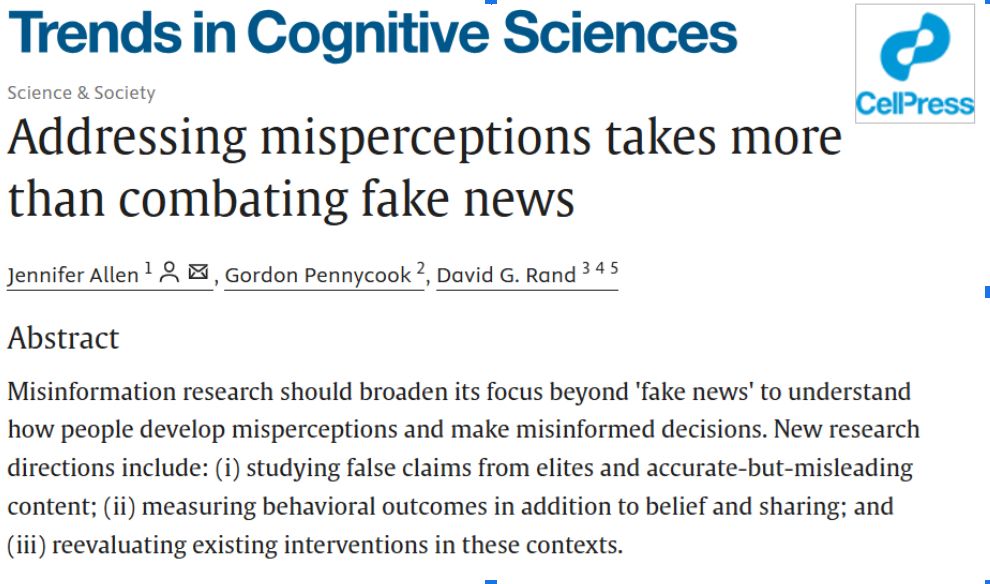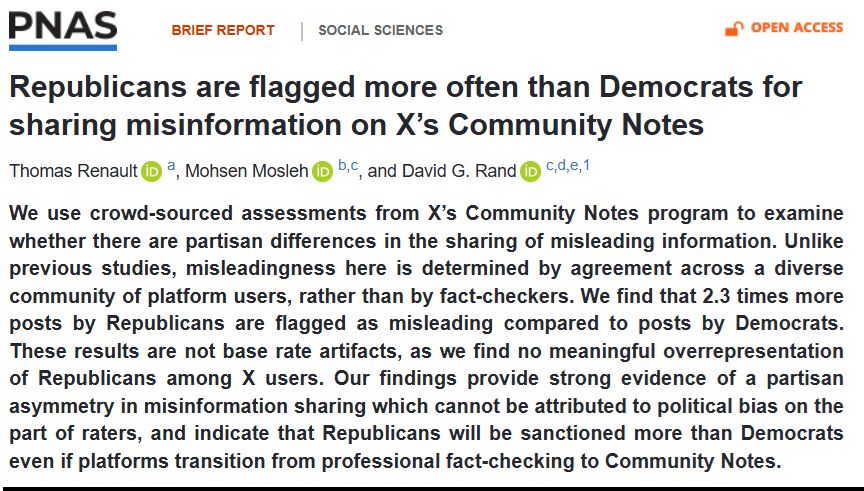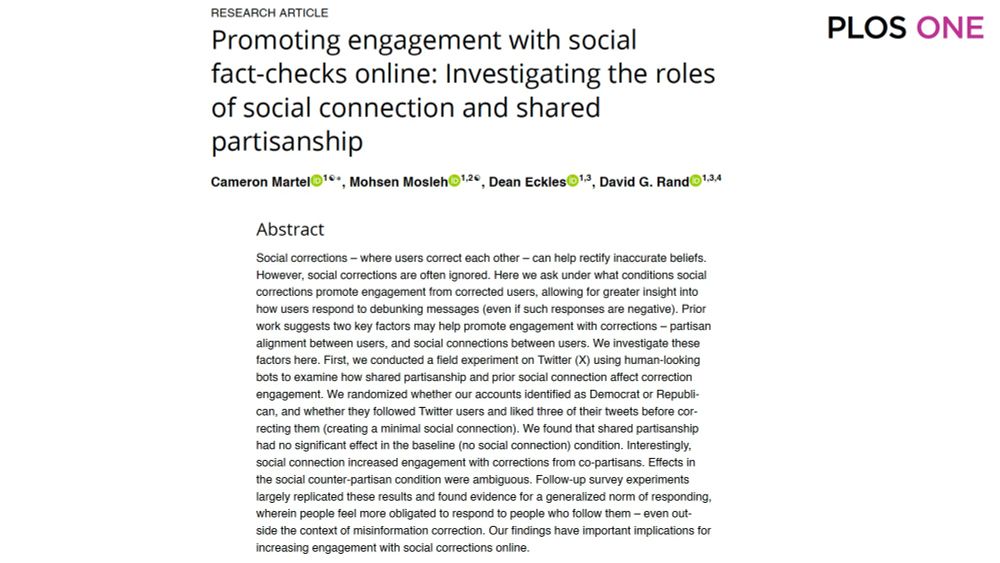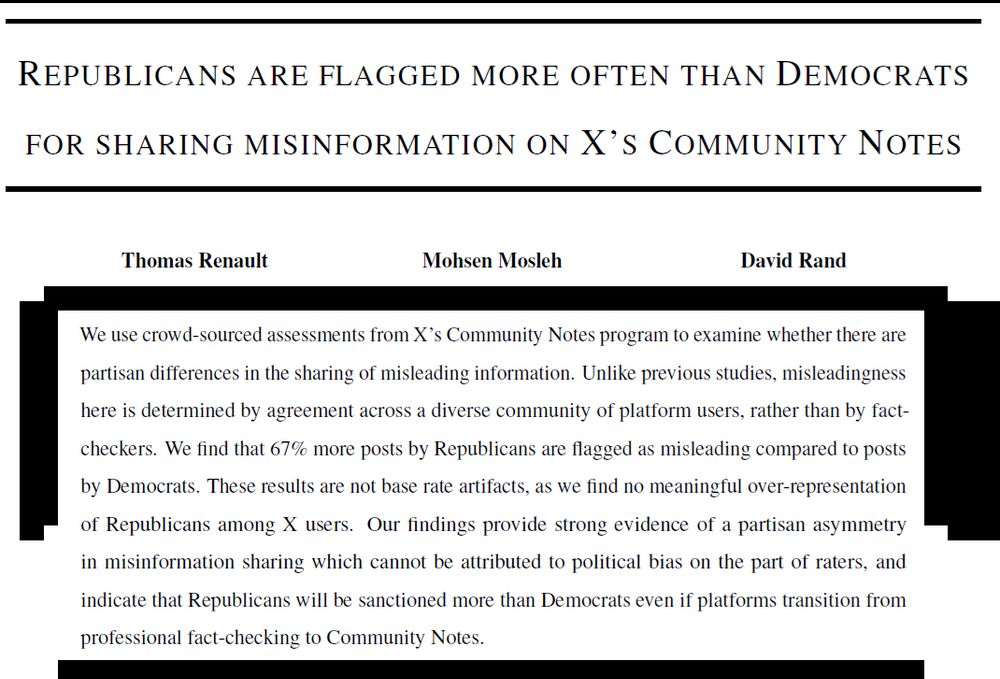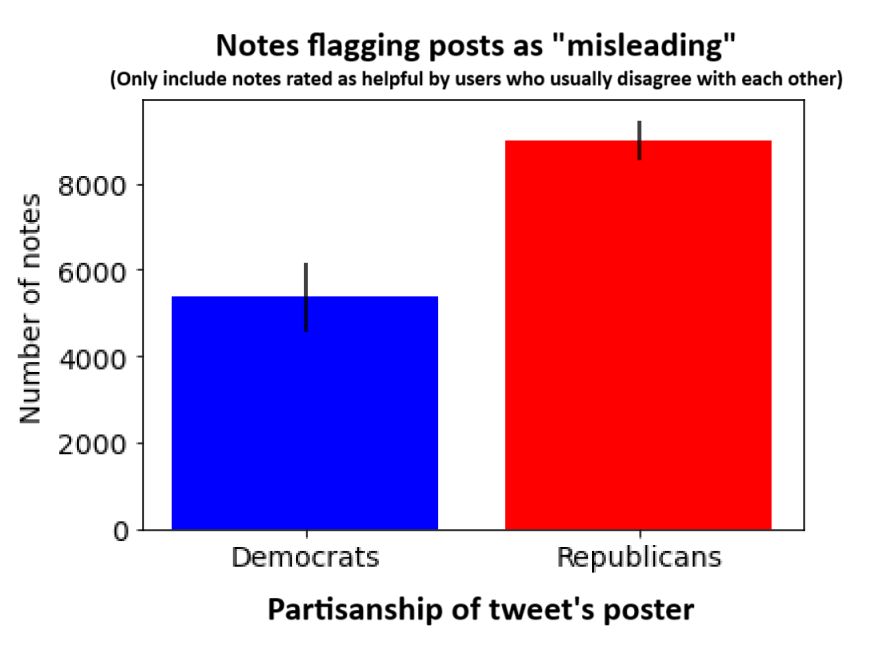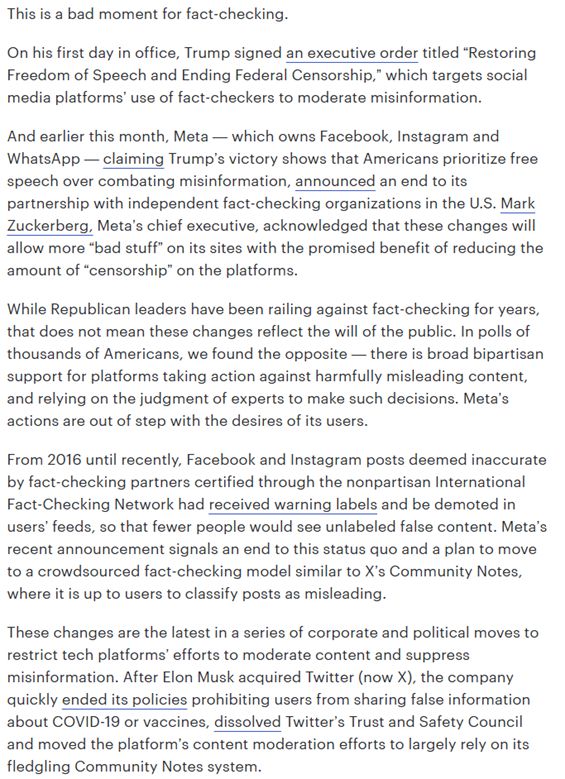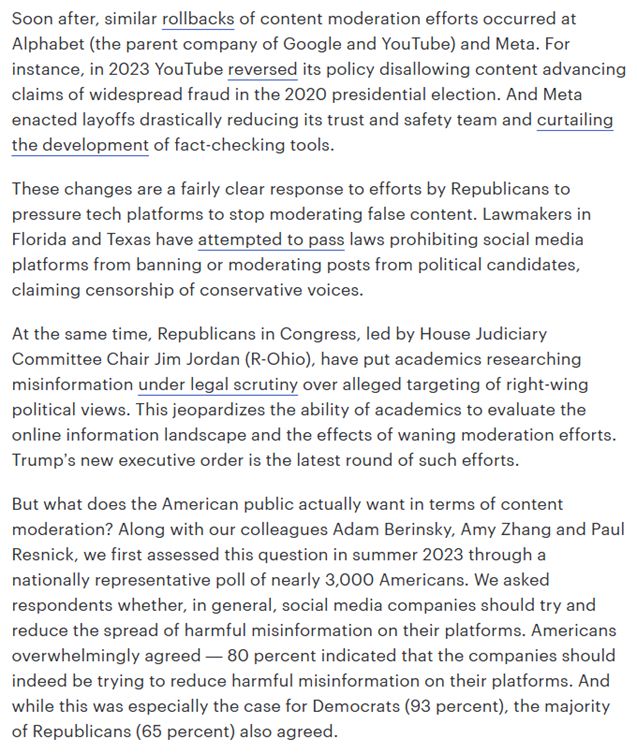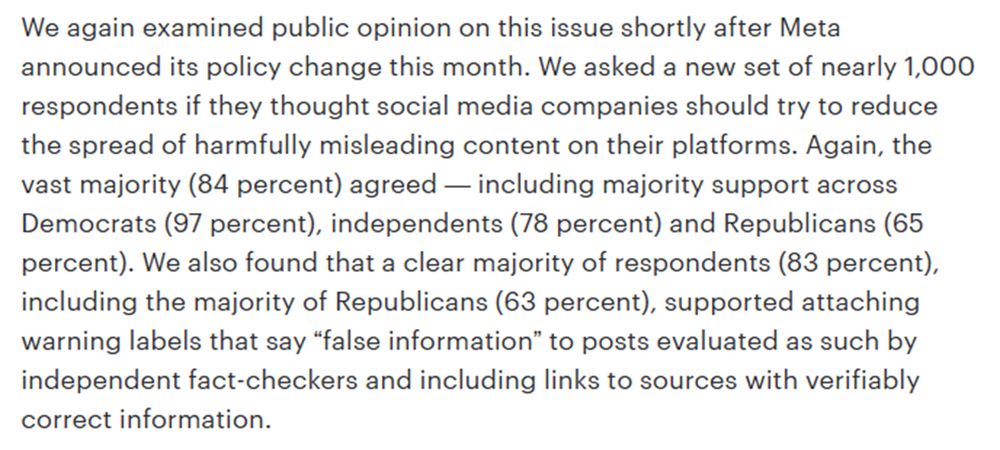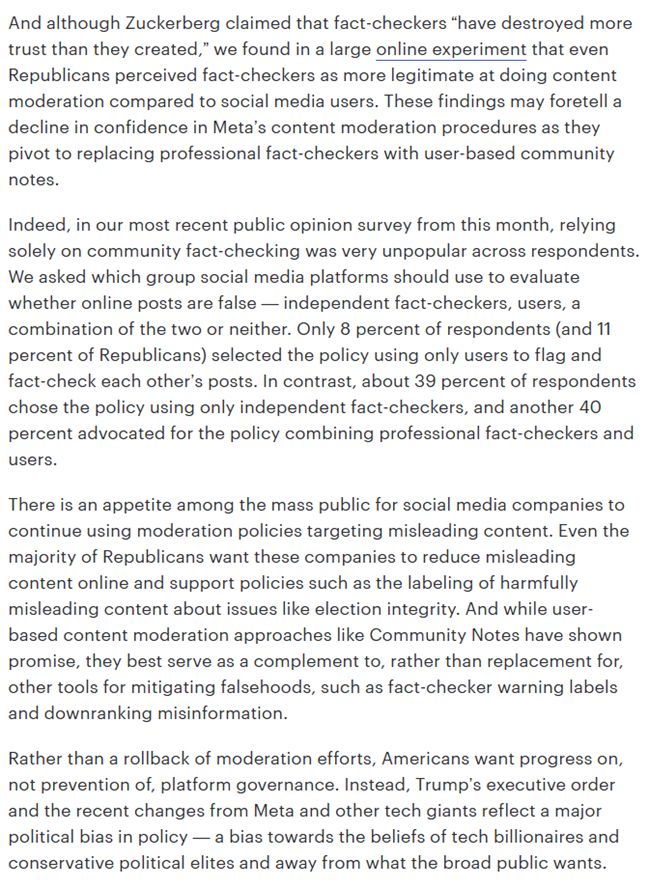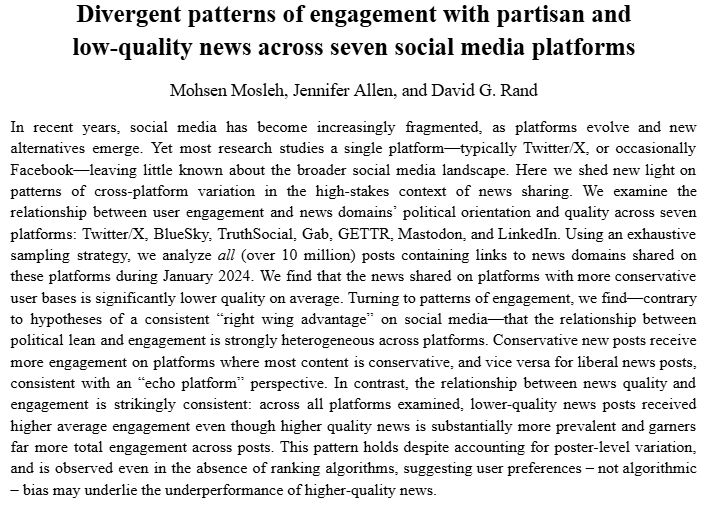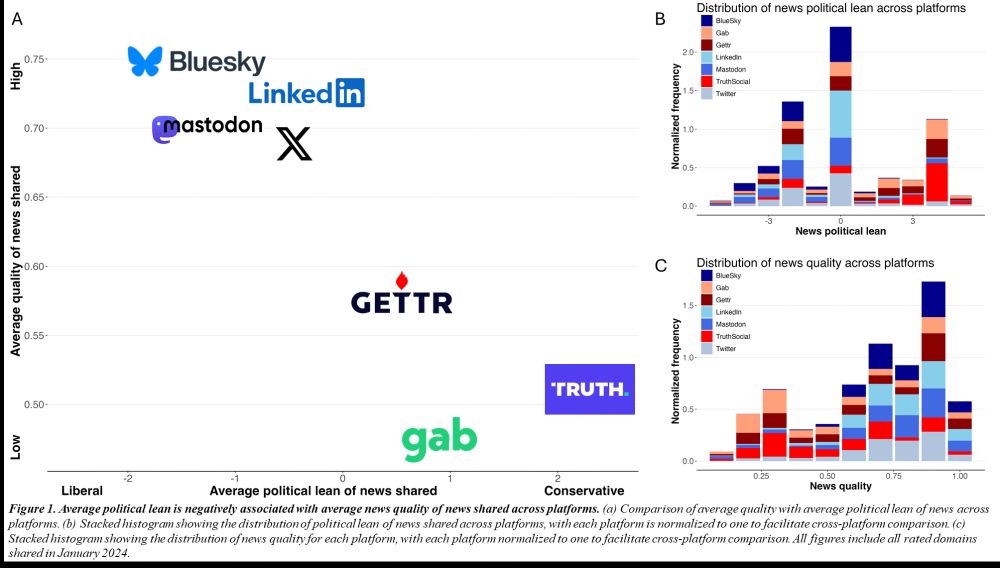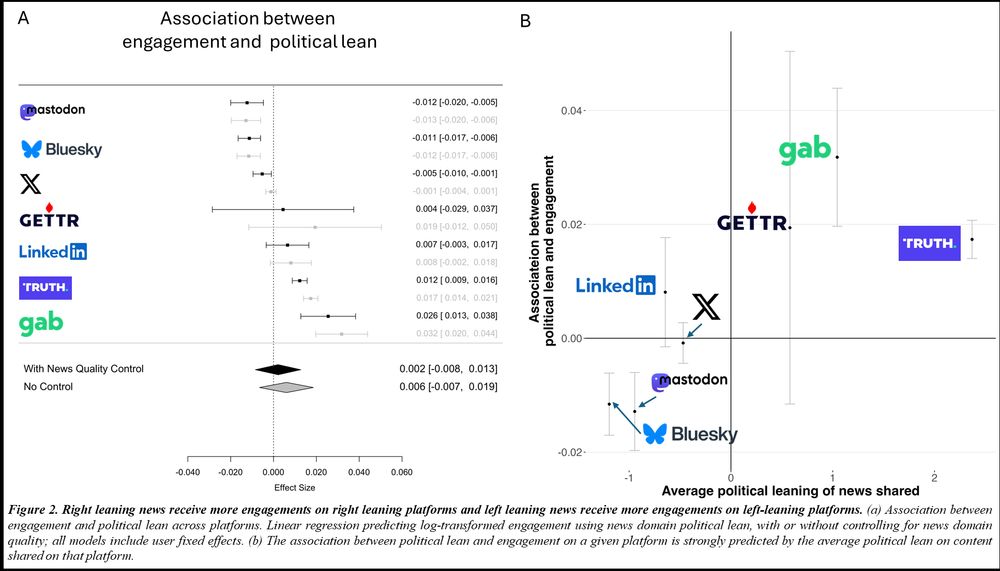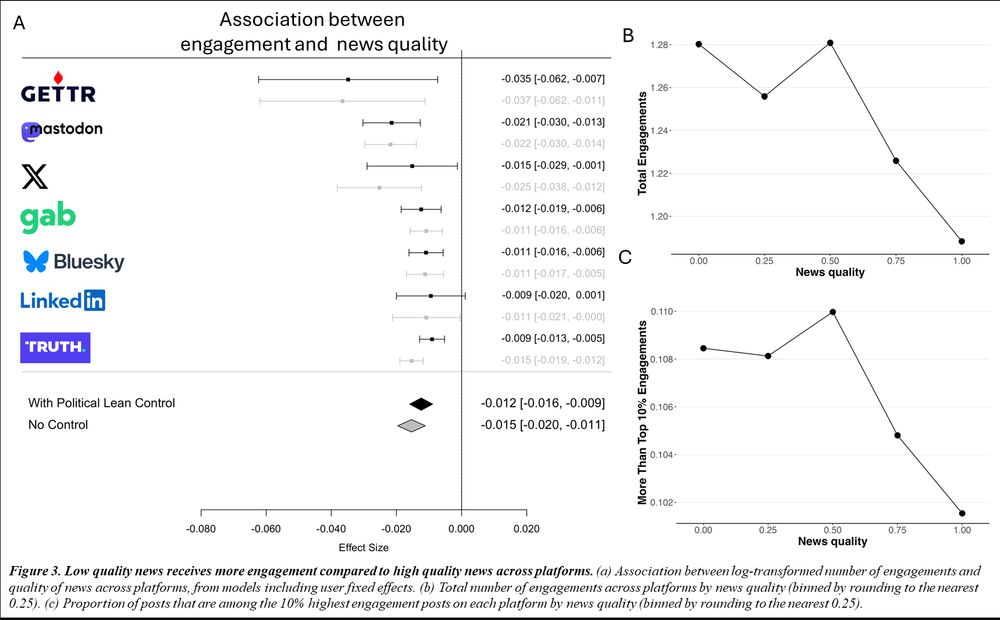Cameron Martel
@cameronmartel.bsky.social
410 followers
260 following
100 posts
Assistant Professor at Johns Hopkins Carey Business School.
Studies misinformation & inauthentic behavior online.
Posts
Media
Videos
Starter Packs
Reposted by Cameron Martel
Reposted by Cameron Martel
Cameron Martel
@cameronmartel.bsky.social
· Apr 14
Cameron Martel
@cameronmartel.bsky.social
· Apr 14
Cameron Martel
@cameronmartel.bsky.social
· Apr 14

Blocking of counter-partisan accounts drives political assortment on Twitter
Abstract. There is strong political assortment of Americans on social media networks. This is typically attributed to preferential tie formation (i.e. homo
academic.oup.com
Cameron Martel
@cameronmartel.bsky.social
· Apr 14
Reposted by Cameron Martel
Oxford Internet Institute
@oii.ox.ac.uk
· Mar 13
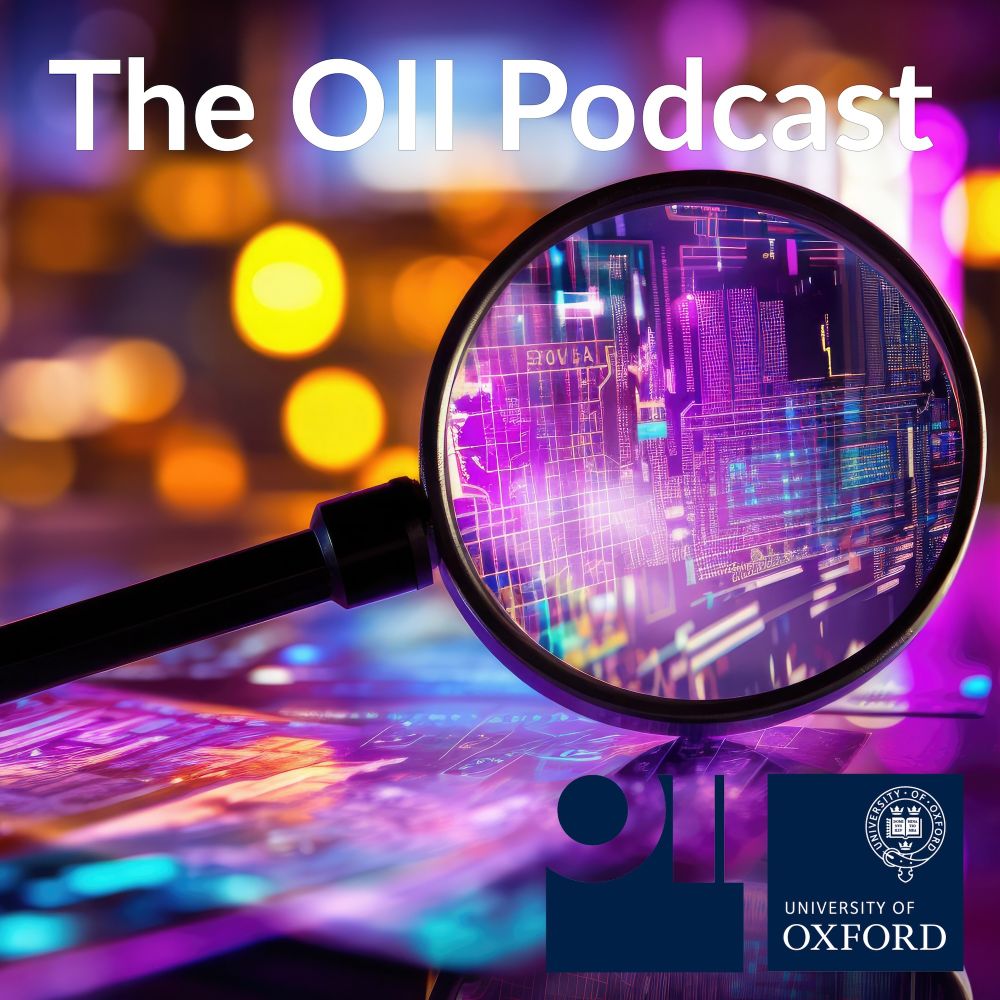
Why social media is the new frontier for misinformation, and what we can do about it: Professor Mohsen Mosleh and Cameron Martel
In the sixth episode of the OII Podcast, our experts discuss topics such as: * The real world impacts that arise when people increasingly identify with their political tribes online * What role govern...
podcasts.ox.ac.uk
Reposted by Cameron Martel
Reposted by Cameron Martel
Reposted by Cameron Martel
Matt DeVerna
@matthewdeverna.com
· Jan 29
Reposted by Cameron Martel
Reposted by Cameron Martel


